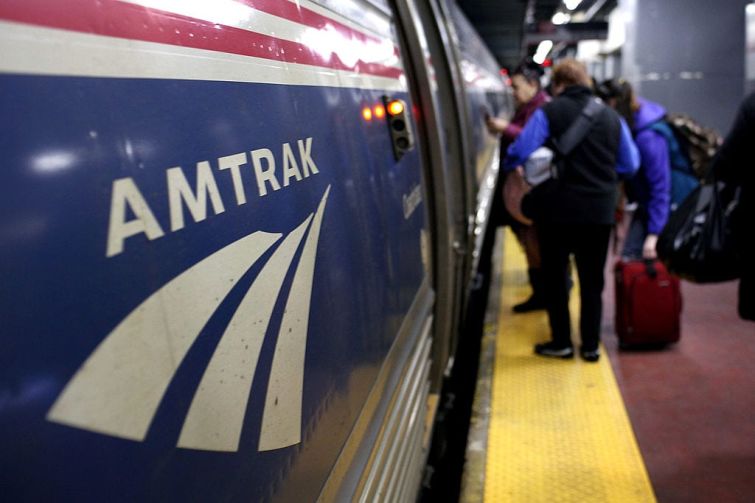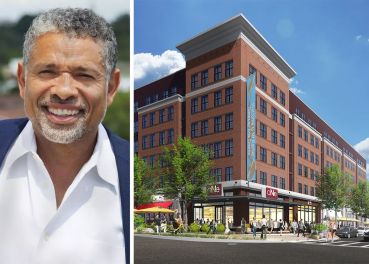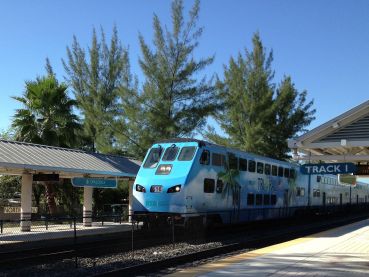What Would Divided Government Mean for Federal Housing and Transit Spending in NYC?
Massive federal monies for New York City real estate and infrastructure hinge upon which party will control the U.S. Senate come January
By Rebecca Baird-Remba November 6, 2020 4:10 pm
reprints
The balance of power in the U.S. Senate likely hinges on a pair of runoff elections in Georgia. However it tilts in the coming weeks could have a deep impact on real estate and infrastructure in the New York area.
Specifically, with former Vice President Joseph Biden winning the presidency, there are questions about how a Republican-controlled Senate will affect fiscal and economic policy writ large, including future COVID stimulus packages, taxes, and spending on transportation and housing.
At the moment, the Senate is currently tied, at 48 seats for the Democrats (whose caucus includes two independents) and 48 seats for the Republicans. Races in North Carolina and Alaska are likely to end up in the GOP column, too, meaning that control of the chamber likely comes down to Georgia, where both Republican-held Senate seats are up for grabs in competitive races.
Rev. Raphael Warnock, a Democrat, won a special election for one seat over Republican Sen. Kelly Loeffler, who was appointed to the position by Republican Gov. Brian Kemp last year following the resignation of longtime Republican Sen. Johnny Isakson. For the second seat, incumbent Republican David Perdue was narrowly beating Democratic challenger David Ossoff in the vote tally.
Since none of the four candidates has earned a majority of the votes in their respective races, however, both seats will be decided in a pair of runoff elections in January. As New York magazine recently pointed out, the Democratic candidates don’t have particularly high chances of winning in deep red Georgia, and a Trump defeat in the state may drive higher Republican voter turnout in the runoff elections. That means the Republicans will probably control the Senate for at least the next two years.
And investors are apparently bullish on the prospect of a divided government. The stock market has rallied over the past few days—with the Dow Jones climbing 542 points Thursday—as investors in the healthcare and tech sectors hope for less regulation and lower taxes with a Republican majority in the Senate.
While Wall Street may rejoice over the prospect of Sen. Mitch McConnell and his party remaining in control of the chamber, the results may be more mixed for the real estate industry. It’s not clear whether Biden’s big infrastructure spending priorities, which include a major upgrade of America’s rail network, would be voted through by a Republican Senate.
Known as “Amtrak Joe” for his decades spent commuting between Delaware and D.C. on the Northeast Corridor line, Biden even included the proposed $30 billion Gateway tunnel between New York and New Jersey in an infrastructure plan released last year. The new tunnel would improve rail service for rail commuters in the tristate area and up and down the East Coast. The existing pair of century-old, single-track rail tunnels beneath the Hudson River create more traffic and delays than any other part of the Northeast Corridor between New York, Boston and D.C. They are also reaching the end of their useful life, after being significantly damaged and flooded during Hurricane Sandy in 2012.
New York City has also been forced to slash its funding for affordable housing because of the pandemic, putting a number of major development projects on pause or at risk. Many affordable developers feel that the federal government will have to step in to cover the shortfalls in the city budget, which amounts to roughly $9 billion.
“I think we need to see investment from the federal government,” said Daniel Moritz, a principal at development firm Arker Companies, which does a lot of affordable housing projects, told CO in September. “There needs to be investment by the federal government in affordable housing, or it’s just going to become worse.”
Developer Don Peebles noted that he doesn’t “see how Biden’s so bad for New Yorkers. It’s important New York is on firm financial footing and solvent. Biden [comes] from the perspective cities are a vibrant part of America, and that the Fed has a responsibility to restore the economies across the board.”
Architecture and urbanism critic Justin Davidson argued on Curbed that Biden could potentially push the Senate to build Gateway, fix the New York City Housing Authority’s decaying buildings, and help the city finance flood-proofing measures for its coastline.
Then there’s the additional $12 billion necessary to rescue the Metropolitan Transportation Authority, which is once again on the edge of fiscal ruin because of a drop in revenue during the pandemic. The agency’s collapse, or anything close to it, could have profound effects on the regional economy, including its residential and commercial real estate markets.
All of these measures would help New York City—and by extension its real estate industry—but it’s hard to predict whether a Republican Senate would approve the tens of billions that New York City needs.
Danny Pearlstein, a spokesman for transit advocacy organization Riders Alliance, said his group was “cautiously optimistic” about federal transit funding for one thing arriving in the coming months.
“McConnell said we should do state and local [aid] and we should do it before the end of the year,” Pearlstein said. “What’s more important is to look at the statements from Chuck Schumer all along. He’s said that a bill won’t leave the floor without money for the MTA in it. We’ve had similar statements from [Brooklyn Rep.] Hakeem Jeffries, who is our most senior member of the House leadership.”
Pearlstein also expects that a Biden Department of Transportation would approve the necessary tolling measures for congestion pricing—which has been stalled by the Trump administration for several months—sometime in early 2020. The policy would raise as much as $15 billion for the MTA over the next five years by tolling vehicles in Manhattan south of 60th Street.
As for Gateway, he pointed out that then-House Speaker Paul Ryan pushed for Gateway funding to remain in the House budget in 2018, because tristate area Republican legislators like Rep. Peter King of Long Island supported the proposal. However, Trump ultimately rejected that version of the bill because Schumer refused to support one of Trump’s signature policy measures: the border wall with Mexico.
“It was moving forward but it was understood that Trump was withholding support for Gateway because Schumer wouldn’t support him building the wall with Mexico,” Pearlstein said. “Paul Ryan insisted on putting money for Gateway in his members’ budget because there was broad support among conservatives.”


